Rotifer - Interview Part 1
by Benjamin Howarth
published: 27 / 8 / 2012
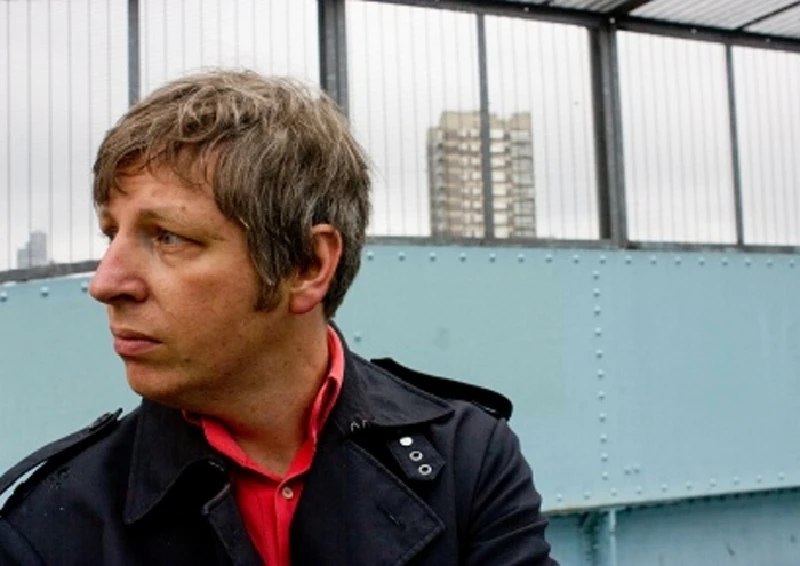
intro
In the first part of a two part interview with indie pop outfit Rotifer, Ben Howarth speaks to Austrian front man Robert Rotifer about their recent album, 'The Hosting Couple', and the departure of Darren Hayman on bass to be replaced by Mike Stone from the Television Personalities
Robert Rotifer is an Austrian songwriter, painter, journalist and radio DJ who has lived in the UK since 1997. A musician since his teens, he began releasing albums as a solo artist after encouragement from friends in London, but until recently had only ever released them in Austria. His distinctive sleeves are all hand painted, and he often paints the animations in his videos as well. One of those videos is in the collection of the Museum of Modern Art in New York. His first album on a British label arrived earlier this year, although he has played live fairly regularly in London and elsewhere in the UK for the last few years. That album, ‘The Hosting Couple’, was recorded in France with Wreckless Eric in the producer’s chair, and featured former Hefner frontman Darren Hayman on bass and former Death in Vegas guitarist Ian Button on drums. Hayman – busy releasing four different albums in 2012 – has since “entirely amicably” left the band, but promises to be “down the front” at future Robert Rotifer shows. He has been replaced by Mike Stone, free to play with Rotifer while his usual band – the Television Personalities – await the recovery of frontman Dan Treacy from a serious illness. Needless to say, the reason why such well credentialed musicians like playing with Robert Rotifer is because he is an excellent songwriter. He writes about unusual subjects with a neat eye for detail, a nice turn of phrase and gift for unlikely chord sequences. You might hear hints of Billy Bragg, Ray Davies and Stuart Murdoch in his songs, but the original subject matter makes it hard to directly compare his songs to anyone else’s. Musically he makes me think of a garage-rock take on ‘Rubber Sou’l-era Beatles, although he can write songs in all styles, with the largely acoustic 2006 album ‘Before the Water Wars’ very different to his more recent work. I met Robert in a pub near King’s Cross station, which he had arrived at on the high-speed train from his home in Canterbury, Kent. He was half way through recording a new album, and was due to go back into Soup Studios in East London again the following week. He plans to play some of the new songs when he plays at the next Pennyblackmusic band night, at our regular venue of the Half Moon in Herne Hill on 3 November. I began the interview by asking what anyone coming along on the night could expect from a Rotifer live performance. RR: Well, on the surface of it, it’s quite a regular three-piece, and I suppose it is always quite rocky when we play live – the songs tend to get extended quite a bit. But also, if there is the right mood, there is quite a lot of story telling involved as well. My best shows have been when I start to lose any inhibition and tell some stories about the songs. Hopefully that’s what this show will be like. PB: I presume you’ve not played in Herne Hill before? RR: No, I’ve never played in South London. It’s ridiculous. PB: There is not so many live music venues south of the Thames… RR: Yeah, but there should be. I’ve completely changed my ideas about London. When I moved to London in 1997 from Vienna, all of my English friends said that I had to move to North London, and I’ve sometimes regretted it since, as when I moved down to Kent, I’ve got to know South London better. It seems to me like a less divided place – maybe it is just because I don’t live there that I think that. PB: Earlier this year, your band had a change of line-up, with Darren Hayman leaving and Mike Stone joining. What has that meant for the band? RR: Well, it was always quite funny playing with Darren Hayman, because he is not really a bass player. He has this tiny toy bass, a little Fender, and he had this really idiosyncratic way of playing. It was a band of guitar players. Ian, my drummer, is actually a guitar player – people often say that he was the drummer in Death in Vegas – no, he was actually the guitar player, and he was the guitar player in Thrashing Doves in the 1980s, a band that not many remember because they have been untouched by the reissue craze, I think down to some publishing issues. But I always really liked having a band of guitar players, because we all thought in terms of songs, rather than of our instrument. So, with Darren, whether I heard much of the bass or not, it was always fun to play with him. But he’s a man who has a hundred projects going at any given time. It was always really hard to arrange gigs with him, because after you had confirmed a gig with a promoter, he would realise that he actually had something else on at that time. Also, he’s not the most efficient person in handling a diary! I think what he got out of this band was being able to play live without having to carry a gig, and he enjoyed that. But I think at the same time it is no coincidence that he was the front man in Hefner. It’s great playing with a bass player who is dancing in front of you, but I think really, just playing bass was not challenging enough for him and not satisfying for him. After we toured in Germany and Austria, which he really enjoyed, he sent a very nice message saying that he thought it was the right time to step aside, and I was actually waiting for that, because it was always going to be a temporary thing. It just so happened that, shortly before, Mike Stone was playing in one of the other acts when we did a gig in Tufnell Park. I didn’t actually know Mike at that point, but Ian told me that he had loved our set, and that he was sure he would like to play. So we met up, and I found out he’s a piano player who plays bass, so he has a very melodic way of playing. He’s more solid than Darren, not in a way that’s meant to be derogatory, and he’s got a good ear for melody. The gigs that I’ve played with him have been very enjoyable. We’re maybe a bit less frazzled round the edges with Mike, and I feel that when I am doing lead stuff, I can rely on the backing a bit more. That’s not to say anything against Darren, but his style was not a usual bass player’s style. PB: So have you done many gigs since Darren has left? RR: Not many, no. We’ve played in Austria and Germany a bit, and we played in Dalston, at the Tigercats LP launch. That was great. We also played at the Enterprise in London. Since then, we’ve been making the new album. I’ve written all the songs, but there is a gestation period before recording. Just yesterday we recorded in my office, because Ian has a mobile studio. Another session we did at Soup Studios, and we’re going to record at Soup again next week. We have about seven songs ready, and they will be the focus of what we are doing now. It will be interesting when we play at the Half Moon. We are going to try out some new stuff. There’s one new song, a translation of a famous quote by a German painter, Max Liebermann, who said when the Nazis marched through the Brandenburg gates, “I couldn’t eat as much as I’d like to throw up”, describing his disgust. I’ve written a long rant around it – I’ve never written a song like this before – it’s the closest I’ve come to a protest song. After playing it once, and we’ve already decided to make it the last song in the set. I’m really looking forward to playing that one. PB: Do you rehearse the songs and have them completely arranged before you go into the studio? RR: I like going into the studio – he says self deprecatingly – in a Bruce Springsteen way, where I show the guys the song and say, “How are we going to do this?” I don’t go quite as far as Springsteen, I do show them a demo beforehand. I think it developed because, for a long time, the line-ups were always changing. I’ve realised that, actually, you can kill songs, and that what we did spontaneously was always better than what we had rehearsed. It sounds like one of those myths, but its good to have a really fresh approach to a song and catch that moment when you have an idea, and I work with people who can do that. Mike told me that, when he used to work with Dan Treacy in the Television Personalities, Dan would come into the studio, grab a guitar and play a song that he’d had in his head, and that was the only way that he could work. I really like that. That is one of the good things that have changed in music, with recording becoming so much easier. We can all work the way only rich bands could work in the past, which is that we can all be spontaneous in the studio. I remember the days when studios were such an expensive thing that as an unknown band, you’d be rehearsed to death and incredibly nervous. PB: The last album, ‘The Hosting Couple’, you recorded all at once, in France with Wreckless Eric. RR: I knew Wreckless Eric from when I first saw him play in 1989. We always stayed in touch, and I interviewed him several times as a music journalist. He’s a really interesting but also fiery and very opinionated character. Over the years, he started to say that he liked my records, and liked certain songs, but he always complained about the production. At some point, during a phone call, he said “I’d like to produce a record for you.” Eric’s the sort of person, as he moves around a lot and has lots of projects, where you don’t want to wait, I said yes right away. I rang up Darren and Ian, and said that Eric wants to do the record with us. At that point, I didn’t have many songs written, I had five songs. We went over three weeks later, and we started recording, and it all went really quickly. On the second night, we’d done our five songs, and Eric said, “what else have you got?” I just had to think about it, and I thought that maybe I still had some other songs that I could use. I remembered an idea I’d had, ‘Aberdeen Marine Lab’, which I’d always thought was too stupid to do… PB: It turned out as one of the best tracks on the album… RR: I had never even played it to the band, and its so simple, that we did the whole thing in two hours. Another was a little instrumental – Darren was on his way to the studio, and Eric had the bass around his neck. I said, let’s do an instrumental, ‘Bag Drop’ where we start in one key, then have a pause, and the next bar will be in this key. So we had the structure agreed, but not the tune. We tried that, so that was an experiment that led to this instrumental. Then, I also wrote a song, the answer to Canvey Island, the ‘Creosote Summer’ song, which I wrote in the garden at Eric’s place. Then there was a song that Darren, Ian and I wrote on the plane out as a game for ourselves, ‘Mr Extra Item Seat’. And all of a sudden, we had an album. I actually had another song I recorded later that I was going to put on it, but Eric asked me not to, as he felt the album was an honest reflection of what we had done in that week, and he didn’t want to change that. I think he was right. It’s a short album, but I like that, I like short albums, between 30 and 40 minutes, though you shouldn’t be dogmatic about it. That’s actually one of good things about having Darren Hayman around in a band – he’s also quite opinionated, and he likes to challenge these things that a certain generation of pop loving know-it-all’s like to carry around, like ‘7” is the perfect pop format’ and ‘albums have to be short’. He always finds an example of music that breaks those rules. PB: You mentioned earlier that Wreckless Eric didn’t much like the production on your earlier albums. Do you think he’ll like the new recordings that you are making, and have you changed your approach based on what you did with him? RR: I was very conscious of recording music that fitted within Eric’s musical worldview. There isn’t any point in going to Eric’s place and doing a jazzy number. But this new album goes further into directions that I wouldn’t do were I to be back at Eric’s place. The last album was a tribute to what I think Eric does best. I’m a huge fan of his ‘La Beat Group Electrique’ and ‘Donovan Of Trash’ albums, and it was a little bit of wish fulfilment to make music like those. But, the new album is being produced by Ian and me. We’ve got piano on it and horn on it, and it won’t sound like the last album. But, at the same time, you are always learning, and one of the things I learned from Eric is that my voice sounds good when it is heavily compressed and put through a sausage machine. So we are going to put it through a sausage machine, even if the rest of the sound is – possibly – a little bit cleaner. PB: I know its early days, but do you think the next album will be coming out on AED, the album run by Edwin Collins and Grace Maxwell, as ‘The Hosting Couple’ was? RR: The fact that we are on Edwin Collins’ label means a lot to me. It means more to me than how well it works commercially. But I can’t guarantee that they would want to put out the new album, because they have lots of releases planned. I don’t want this album to sit in the vaults for ages. But, as for now, I still believe that we are part of AED, and it would be fantastic if it could stay that way.
Band Links:-
https://www.facebook.com/robert.rotiferPicture Gallery:-
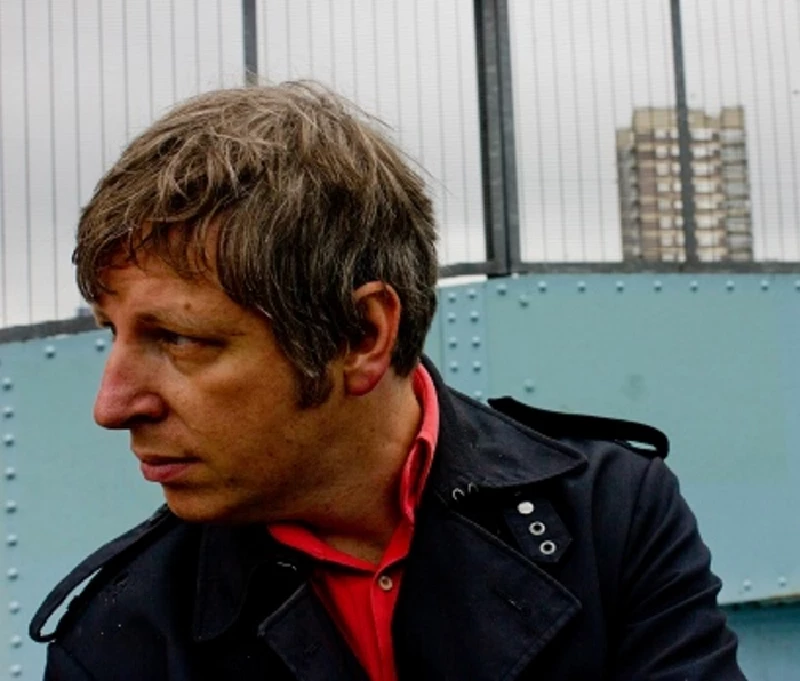
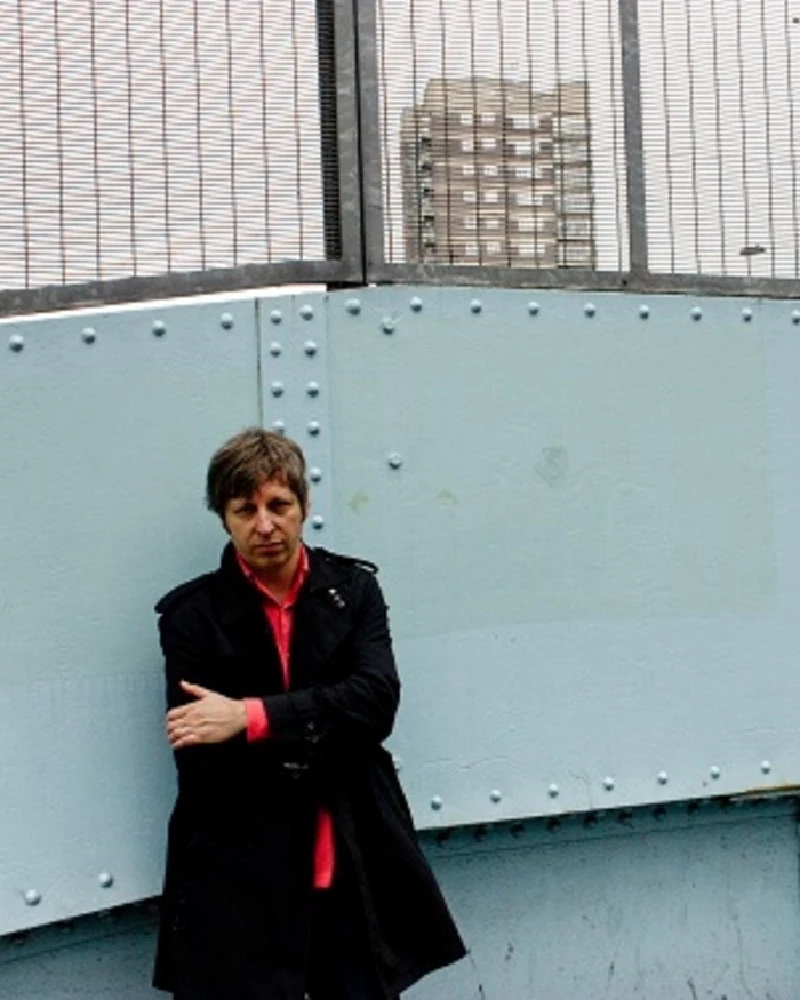
Visitor Comments:- |
| 652 Posted By: CanadianRotiferFan, Canada on 02 Oct 2013 |
|
...great production, but Jesus, Eric, what a damned grump you make yourself appear with your posting.
Looking forward to the next one Robert!!!
|
| 591 Posted By: Robert Rotifer, Canterbury on 21 Sep 2012 |
|
No excuses necessary. Clearly, this was meant as a compliment.
A producer without strong opinions about how he or she wants a record to sound is not a producer at all. As you are a great producer, your opinions are very strong, and I value that enormously.
The problem with pop music, as I see it, is that too many people find everything sort of okay and don't take a stand. No one would ever accuse you of that.
In fact, one of the things I enjoyed most about our time in France were the discussions we had in the studio and in your kitchen, properly debating what to do and, yes, exchanging musical world views, then handing our music over to you and your decisions. This was very much the point of it all.
Who would want to work with someone without a world view?
The term "jazzy number", on the other hand, was very obviously a self-deprecating description of a certain type of tune with convoluted chord changes that I sometimes write when I'm getting self-conscious.
Actually, Way of the World and Art For The Spare Room are a bit like that, so we did record some jazzy numbers after all.
Anyway, I never mentioned "jazz" as such, nor that I could or would want to play or record jazz with you or anybody else.
As it happens, Mike Stone is a great jazz player on the piano, you should hear him. I couldn't hope to join in.
|
| 590 Posted By: Wreckless Eric, New York State on 18 Sep 2012 |
|
You saw the need to fit in with my "musical worldview"???? Excuse me for offering an opinion but you wouldn't come to me to record a jazzy number for the simple reason that you can't play jazz.
|
interviews |
|
Interview (2013) |
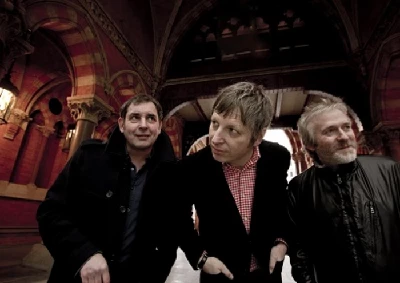
|
| Ben Howarth chats to Austrian-born singer-songwriter and music journalist Robert Rotifer about his indie pop trio Rotifer's forthcoming second UK album, the politically abrasive 'The Cavalry Never Showed Up', which is being released on Gare du Nord, a new label collective |
| Interview Part 2 (2012) |
live reviews |
|
Rotifer, John Howard and Mel Mayr - Servant Jazz Quarters, London, 26/11/2014 |
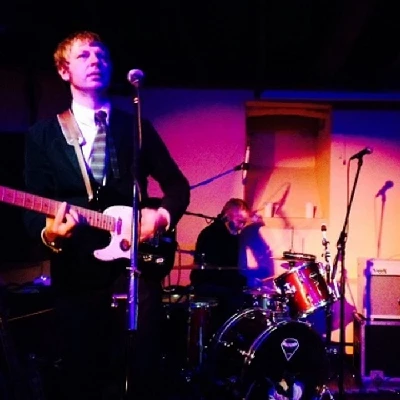
|
| In the second of two showcases from record label and collective Gare du Nord, Ben Howarth at the Servant Jazz Quarters in London enjoys sets from indie trio Rotifer, rediscovered 70's singer-songwriter John Howard and Austrian singer-songwriter Mel Mayr who was playing her first British gig |
soundcloud
reviews |
|
The Cavalry Never Showed Up (2013) |
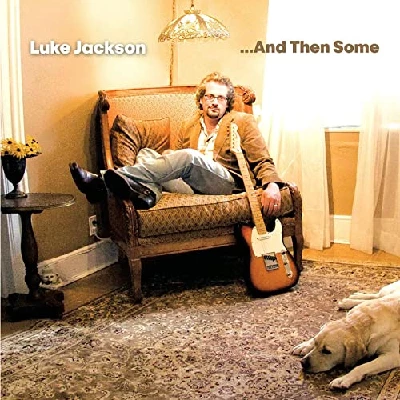
|
| Exceptional second UK album of abrasive pop from Rotifer, the band of Austrian-born yet now Canterbury-based singer-songwriter Robert Rotifer |
| The Hosting Couple (2012) |
most viewed articles
current edition
Shrag - Huw Stephens Session 08.12.10 and Marc Riley Session 21.03.12Gary Numan - Berserker
Razorlight - Photoscapes
Max Bianco and the BlueHearts - Troubadour, London, 29/3/2025
John Hassall - Photoscapes
Primal Scream - Photoscapes
Roberta Flack - 1937 - 2025
Waeve - Club Academy, Manchester, 18/3/2025
previous editions
Heavenly - P.U.N.K. Girl EPManic Street Preachers - (Gig of a Lifetime) Millennium Stadium, Cardiff, December 1999
Boomtown Rats - Ten Songs That Made Me Love....
Beautiful South - Ten Songs That Made Me Love...
Barrie Barlow - Interview
Oasis - Oasis, Earl's Court, London, 1995
Trudie Myerscough-Harris - Interview
Dwina Gibb - Interview
Pixies - Ten Songs That Made Me Love...
Doris Brendel - Interview
most viewed reviews
related articles |
|
Rapid Results College: Interview (2016 |

|
| John Clarkson speaks to Rob Boyd, the front man with C-86 /Dunedin Sound-inspired indie pop trio Rapid Results College, about their debut album, 'In City Light' |
| Papernut Cambridge: Interview (2014) |
Pennyblackmusic Regular Contributors
Adrian Janes
Amanda J. Window
Andrew Twambley
Anthony Dhanendran
Benjamin Howarth
Cila Warncke
Daniel Cressey
Darren Aston
Dastardly
Dave Goodwin
Denzil Watson
Dominic B. Simpson
Eoghan Lyng
Fiona Hutchings
Harry Sherriff
Helen Tipping
Jamie Rowland
John Clarkson
Julie Cruickshank
Kimberly Bright
Lisa Torem
Maarten Schiethart